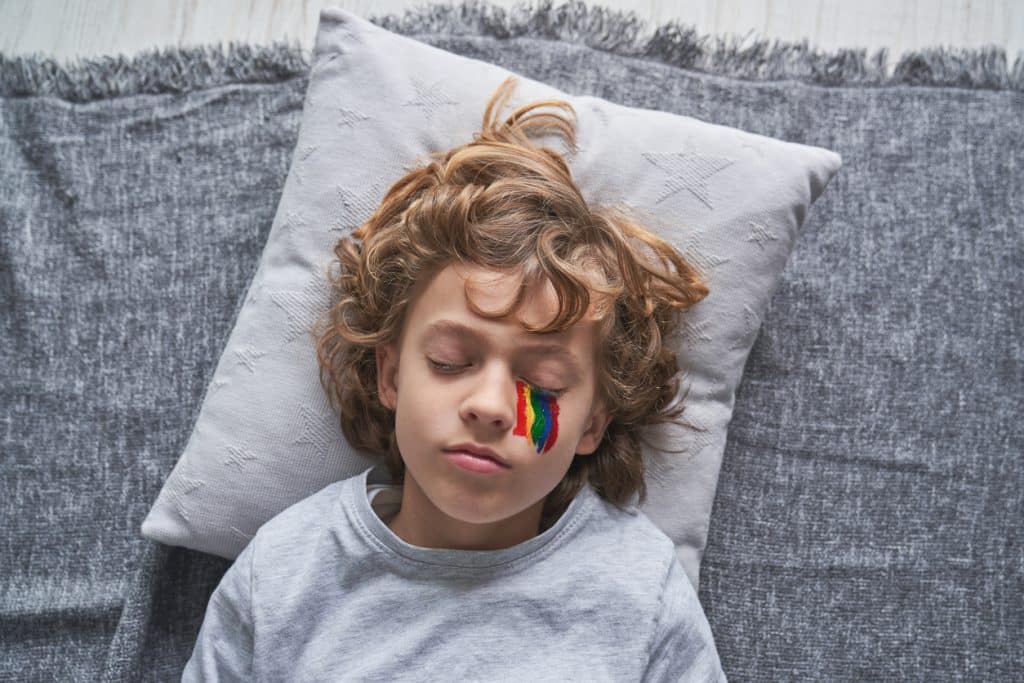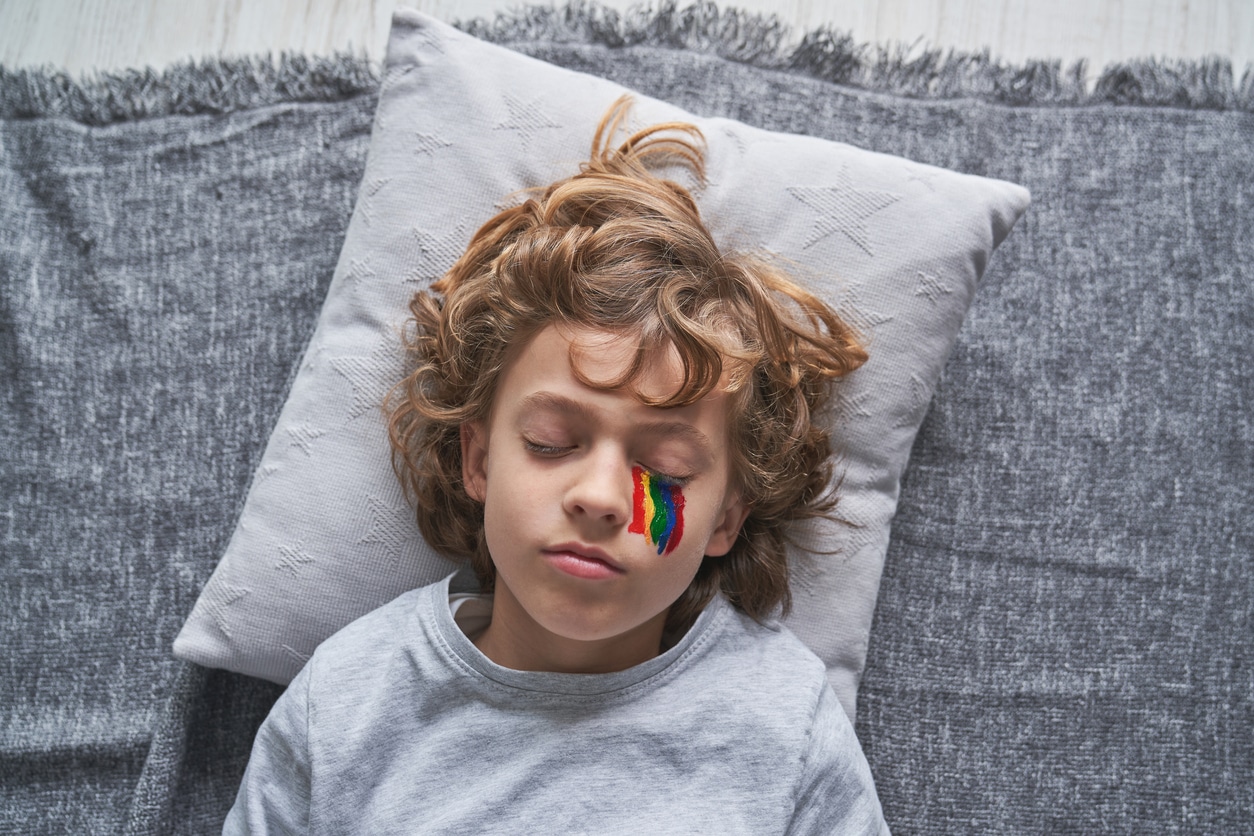Painting is a lot of work! And not just in the physical sense – it can be mentally and emotionally demanding, too. So it’s no surprise that you might feel pretty exhausted by the time you’re finished with your masterpiece. But have you ever wondered why painting specifically seems to make you so tired? Let’s take a closer look at the science behind why this might be.
Is it normal to feel tired after painting?
After a long day of painting, you might be feeling exhausted. It’s totally normal to feel this way! In fact, it’s actually a good thing. After all, you’ve just spent hours concentrating on your artwork and using up a lot of mental and physical energy. Even if you feel that you are having so much fun, painting for extended periods can be physically tiring. Here’s why you might be feeling tired after painting, and what you can do to combat the fatigue.

Why do you get so tired when you paint?
Mental concentration
When you’re focused on a task, your brain is working hard to process all the information it’s taking in. In fact, your brain uses about 20% of your body’s total energy when it’s at rest. So when you add in the mental effort of painting, it’s no wonder you start to feel tired!
When we focus our attention on a single task for an extended period of time, our brains start to tire. This is because our brains are constantly processing information, and the more information we take in, the more mental energy we expend. Over time, this mental fatigue sets in and we start to feel physically tired as well.
See also: Why do I get sleepy when I draw?
Your brain is also releasing chemicals that can make you feel more alert, like adrenaline and cortisol. These help you to stay focused on what you’re doing. But they can also lead to feelings of anxiety and irritability, which might contribute to that feeling of being “hangry” (hungry + angry) that sometimes hits when we’re trying to complete a project.
Emotional outpouring
Painting is a form of self-expression that allows us to tap into our emotions and put them on display. For some people, this can be a very therapeutic experience. It can help us to process our feelings and work through difficult life experiences.
However, it’s also important to remember that painting is not always rainbows and butterflies. Sometimes, the emotions that we are trying to express can be dark and painful.
This is why it’s not surprising that many painters report feeling tired after working on a painting for an extended period of time. They have poured their heart and soul into their work, and this can be emotionally taxing. Just like any other form of self-expression, painting requires vulnerability. It takes courage to put your innermost thoughts and feelings on display for the world to see.
Read also: Why does listening to music make me tired?
Physical tiredness
It’s not just your brain that’s working overtime when you’re painting – your body is, too! Your muscles have to adjust constantly to keep you in the right position, and your heart works harder to pump blood to all those muscles. All that physical activity can take its toll after a while, especially if you’re not used to it. Plus, paint fumes can be pretty draining, especially if the room isn’t well-ventilated.
Is house painting tiring?
Yes, house painting is tiring but it’s totally worth it.
When you’re painting your house, you’re using muscles that you don’t usually use when you’re just going about your day-to-day life. For example, when you’re reaching up to paint the ceiling, you’re working your arms and shoulders in a way that they don’t usually get worked. And when you’re leaning over to paint the baseboards, you’re working your core muscles. So not only are you getting a workout, but you’re also working muscles that you wouldn’t normally work out.
Paint fumes can also make you feel more tired. If you’re using oil-based paint, the fumes can be pretty intense. That’s why it’s important to make sure that the room you’re painting is well-ventilated. If you don’t have any windows or fans available, you can try wearing a respirator mask to help filter out the fumes.
Although it may be tiring, house painting is a great way to relieve stress. A lot of people find that after a long day at work, they feel much better if they’ve had a chance to do something active and productive, like painting their house. So not only is painting good for your body, but it’s also good for your mind!
Also, house painting is a great cardio workout. Most people don’t realize this, but when you’re painting for long periods of time, your heart rate actually goes up and you start to sweat. This means that you’re getting your heart rate up and getting some good cardio in, without even having to go to the gym or go for a run!
House painting with quality materials can help avoid you getting too tired too quickly. Cheap paints and brushes can be hard on your hands and eyes, so it’s worth investing in higher-quality products. Additionally, using primer can help reduce the amount of time you spend painting, as it will cover the surface more evenly and prevent paint from seeping through cracks or porous areas
How to combat feeling tired after painting?
Get enough sleep
Any artist knows that to produce their best work, they need to be well-rested. Unfortunately, sometimes life gets in the way and it’s hard to get enough sleep. When this happens, it can be difficult to stay focused and motivated while painting.
However, it’s important to make sure you are well-rested before starting a painting session. If you’re tired, your body will have a harder time dealing with the physical, mental and emotional demands of painting.
Take regular breaks
When you feel yourself getting tired, take a break and do something else for a few minutes. This will help to refresh your mind and body so you can come back to your painting with renewed energy.
Use good lighting
Good lighting not only makes it easier to see what you’re doing, but it also helps to prevent eye fatigue. In addition, proper lighting can help to improve your mood and concentration. Here are a few tips on how to use lighting to stay energized while painting.
- Use natural light whenever possible. If you’re lucky enough to have a sunny window in your painting space, take advantage of it! Natural light is the easiest on the eyes and will help to keep you from getting too tired.
- If natural light isn’t an option, try using cool white fluorescent bulbs. These bulbs emit very little heat and provide bright, even light that is easy on the eyes.
- Avoid using halogen or incandescent bulbs if possible. These bulbs emit a lot of heat and can make your painting space uncomfortably warm. In addition, the light they emit is often too harsh and can cause eye fatigue.
- Don’t forget about task lighting! In addition to general room lighting, you’ll also want to have a light source that is specifically for painting. A desk lamp with an adjustable arm is ideal since it will allow you to position the light exactly where you need it. Try to find a lamp with a diffuser so that the light is not too harsh.
Drink plenty of water
When you are in the zone painting and creating art you can sometimes forget to do basic things like drink enough water. It’s important to stay hydrated while painting as it will help to keep your energy levels up.
In addition, drinking water can help to prevent headaches and dizziness which can sometimes be caused by fumes from paint or other materials.
If you find that you’re getting thirsty while painting, make sure to take a break and drink some water. A good rule of thumb is to drink eight glasses of water per day, but you may need more if you’re sweating a lot while painting.
Eat healthy snacks
Whenever you start to feel your energy levels dipping, have a healthy snack on hand to give yourself a quick boost. Avoid sugary snacks as they will cause you to crash soon after eating them.
Get some fresh air
If you start to feel yourself flagging, step away from your easel for a few minutes and get some fresh air. Take deep breaths and clear your head so you can come back to your painting refreshed and invigorated.
Sit up straight
When you paint, you want to be as comfortable as possible so that you can focus on your work. However, comfort doesn’t mean that you should be slouching over your canvas. Maintaining good posture is essential to avoiding fatigue and pain later on. Here are a few tips for maintaining good posture when painting art:
Sit up straight in a chair with your feet flat on the ground. If you’re working on a large canvas, make sure that it’s at waist level so that you don’t have to strain your neck or back. take breaks often to stretch your limbs and move around.
Invest in an ergonomic paintbrush holder. This will help you maintain a good grip on your brush without having to strain your wrist.
Conclusion: Why do I feel so tired after painting?
There are many possible explanations for why someone might feel tired after painting. It could be due to the physical exertion of painting, or it could be from exposure to fumes and chemicals in paint. It is also possible that the person is simply not used to the activity and their body is reacting accordingly. Whatever the reason, it is important to listen to your body and take a break if you feel tired. Painting can be a fun and rewarding activity, but it is also important to take care of yourself while doing it.
